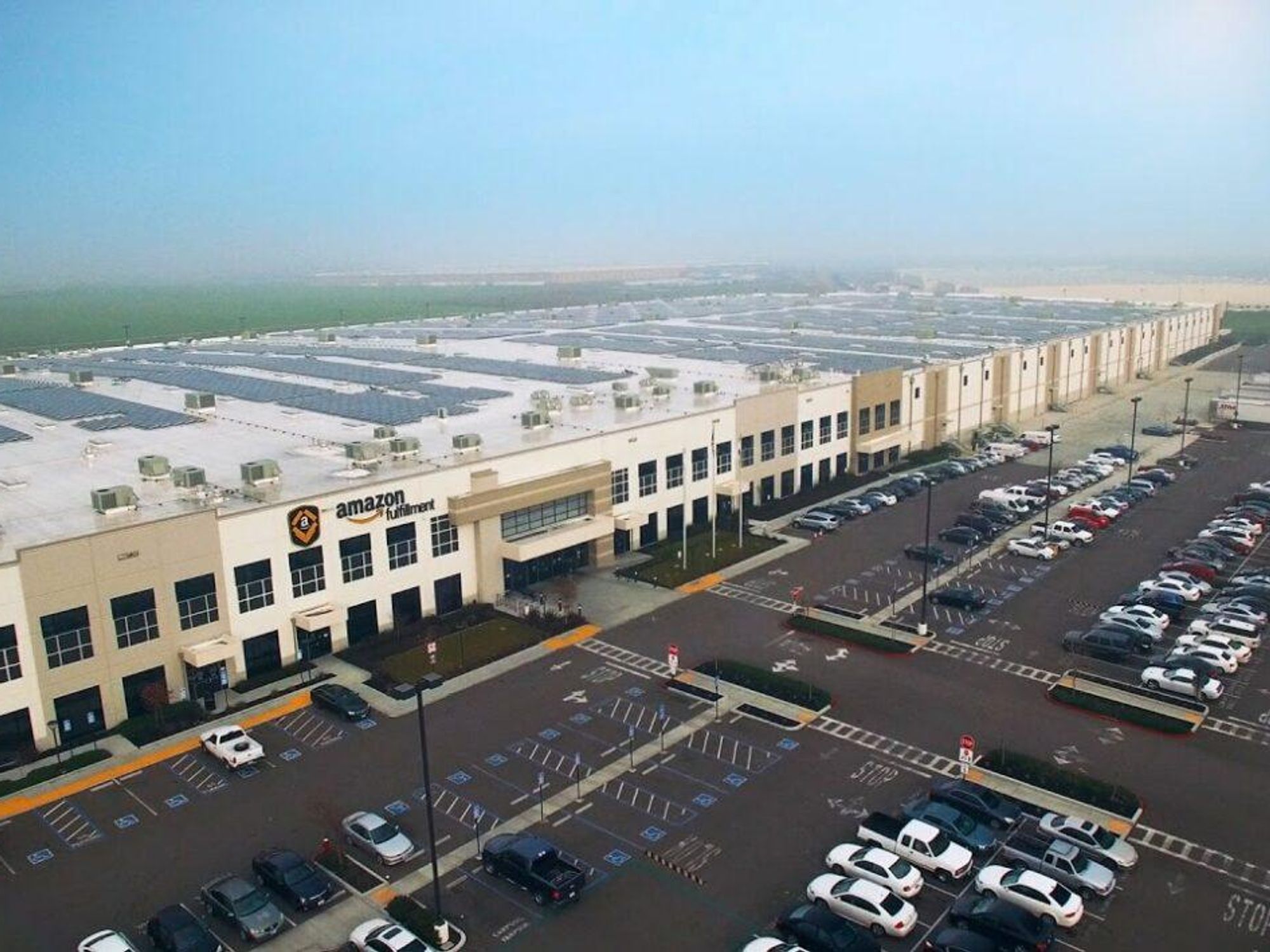California Cities Call on Amazon to Fix ‘Tremendous Inequity’ in Tax Revenue

Some California cities are calling on the state to return to a more equitable method of sharing tax revenue generated by Amazon's online sales — warning that a change made earlier this year creates an unfair system of "winners and losers" in the disbursement of millions of dollars used for critical public services.
The stakes are high: Amazon is bigger in California than in any other state, with 60 fulfillment and sortation centers, 50 delivery stations, and 153,000 employees. That's according to its official count as of the end of 2020. The numbers are even higher now, given the rapid expansion of Amazon's fulfillment and delivery network.
In theory, California's cities should be benefitting from that growth. Amazon has been collecting sales tax from online purchases in California since 2012.
Until this year, that tax revenue was disbursed based on the customer's location, going to the local municipality where the product was delivered. But as of earlier this year, the practice changed to give the tax revenue to the municipality from which the item was shipped, the location of the Amazon fulfillment center.
City officials from across the state will consider the issue at the upcoming League of California Cities annual conference. A proposal submitted to the group by the City of Rancho Cucamonga, Calif., would call on the state to enact "a fair and equitable distribution" of the 1% percent sales tax from in-state online purchases.
"This change has created a situation where most cities in California – more than 90%, in fact – are experiencing a sales tax revenue loss that began in the fourth quarter of calendar year 2021," reads a report from Rancho Cucamonga accompanying its proposal to the group, known as Cal Cities.
The report adds, "Many cities may not be aware of this impact, as the fluctuations in sales tax following the pandemic shutdowns have masked the issue. But this change will have long-term impacts on revenues for all California cities as all these revenues benefiting all cities have shifted to just a handful of cities and counties that are home to this retailer's fulfillment centers."
The change has resulted in Amazon's sales tax revenue "being entirely allocated to the specific city where the warehouse fulfillment center is located as opposed to going into a countywide pool that is shared with all jurisdictions," according to Rancho Cucamonga's proposal.
The proposal attributes the shift to a change by Amazon in the ownership of its fulfillment centers from a third-party vendor to the company itself, which alters how its sales are treated under California's tax policy.
Amazon disputes this explanation, and says it is simply following guidance from the California Department of Tax and Fee Administration (CDTFA), which determines how sales tax revenue for Amazon online purchases should be treated.
"As a company with operations in California, we are obligated to follow the tax collecting guidance set by the state and have adjusted our tax collection process to ensure we remain compliant with the law," an Amazon spokesperson said in a statement to GeekWire this week. "We are committed to investing in the communities in which we operate and helping local economies grow."
California cities rely heavily on sales tax as a revenue source, due the limitations put on property taxes by Proposition 13 starting in 1978. A 1% local sales tax, known as the Bradley Burns tax, has been in place across the state since the 1950s.
The change in tax revenue distribution from Amazon sales "has created a tremendous inequity amongst cities, in particular for cities that are built out, do not have space for siting a 1 million square foot fulfillment center, are not located along a major travel corridor, or otherwise not ideally suited to host a fulfillment center," the Rancho Cucamonga proposal says.
It adds, "These policies especially favor retailers who may leverage current policy in order to negotiate favorable sales tax sharing agreements, providing more money back to the retailer at the expense of funding critical public services."
The proposal acknowledges "that those cities that have fulfillment centers experience impacts from these activities and deserve equitable supplementary compensation." However, it adds, "the neighboring cities whose residents are ordering product from that center now receive no revenue from the center's sales activity despite also experiencing the impacts created by the center, such as increased traffic and air pollution."
Rancho Cucamonga's proposal received initial endorsements from cities including Placentia, Sacramento, Moorpark, Lakewood, La Verne, and El Cerrito. Leaders in other cities across the state have since signaled their support, as well.
The proposal will be considered at the Cal Cities annual conference, Sept. 22-24 in Sacramento. Approval would enable the group to pursue legislative changes.
This story originally appeared on GeekWire.
- LA Optimized Aims to Get City's Small Business to Ecommerce - dot.LA ›
- Amazon Unveils Cashier-less Supermarket of the Future — and L.A. ... ›




 Image Source: Skyryse
Image Source: Skyryse
 Image Source: Northwood Space
Image Source: Northwood Space